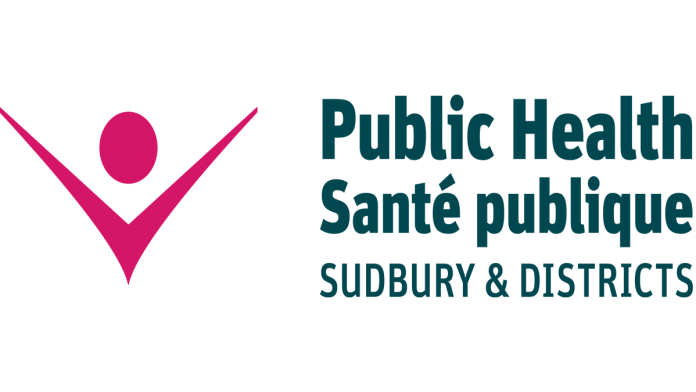MANITOULIN – The words we use matter. Research has proven that terms like ‘substance abuser’ encourage bias and negative attitudes so understanding how language can influence our perceptions is an important step in reducing the stigma of substance use disorder. Reducing the stigma reduces barriers for those individuals seeking treatment and recovery.
Stigma is any attitude, belief or behaviour that discriminates against people. According to the Canadian Mental Health Association (CMHA), “stigma is the negative stereotype and discrimination is the behaviour that results from this negative stereotype.” People with substance use disorder often face pervasive stigma and discrimination, which is one of the greatest barriers to an individual’s living a productive, satisfying life.
One study conducted by the World Health Organization ranked drug use as the most stigmatized condition in a list of 18 stigmatizing conditions that included homelessness and having a criminal record. Alcohol use was ranked fourth on that list. Another study by the United States’ National Centre for Biotechnology Information (NCBI) reported, “While individuals with substance use disorders report experiencing various forms of discrimination due to their gender, race and sexual orientation, drug use has the greatest impact on their lives.” Stigma affects the employment, physical and mental health of persons with substance use disorder and often leads to rejection by family and friends.
The Expositor explored the issue of substance use at a local level in its June 23 supplement, ‘Out of the Shadows: An In-Depth Look at Manitoulin’s Opioid Crisis,’ available at The Expositor Offices in Gore Bay and Little Current or online.
According to Canadian Centre on Substance Use and Addiction (CCSA), one in 10 Canadians experience substance use problems today. Eight of 10 Canadians with a substance use disorder say they have experienced barriers to recovery, including stigma, and Statistics Canada has reported that almost 50 percent of Canadians in recovery from a substance use disorder have experienced stigma when in active addiction.
Stigma often emerges in the form of derogatory language that shames, belittles and dehumanizes people. As this stigma also exists within the healthcare profession, it can be particularly damaging by leading to people either abandoning treatment or becoming very wary about seeking treatment.
Dr. John Kelly, a Harvard professor and founder of the Recovery Research Institute, has done a lot of work on stigmatizing language, substance use and substance use stigma and has studied how the use of certain language changes how people think, said Claire Rykelyk-Huizen, a registered social worker with CCSA. In Dr. Kelly’s research, she said, “clinicians who heard the term ‘substance abuser’ were more likely to see those individuals as more deserving of punishment and less deserving of treatment than when that same person was described as having a substance use disorder. The word abuser, for example, brings to mind wilful misconduct, something that is the fault of a person.”
When you think of the term abuser, explained Ms. Rykelyk-Huizen, we tend to think of child abuse or spousal abuse. “The word has wholly negative connotations. That’s why it absolutely has to be removed from our lexicon when we’re describing somebody with a substance use disorder. It’s just so negative.”
“Stigma perpetuates substance use. It worsens it and increases the risks associated with substance use. It’s a really serious issue,” she said. “Substance use disorder is a health condition and not a moral choice or moral failing. We need to use medically accurate language when we talk about somebody with a substance use disorder or with problematic substance use.”
We wouldn’t talk about somebody who has cancer in that way, she said. “It’s important to change the language. We need to use destigmatizing language and to gain a better understanding around the neurobiology of substance use and where it comes from. We need to raise awareness and educate people.”
“The more we know about problematic substance use and substance use disorder the more we will see these connections with past trauma and adverse childhood experiences as well as genetics and other things that intersect in the individual to make them more vulnerable to developing a substance use disorder later in life,” she said. “It’s a complex condition and it’s a health condition. Once people understand it that way, they will have a better understanding and stop blaming people for a condition they cannot help.”
Some people will argue that it was a choice the first time a person used substances. “That’s a really good point,” she said. “The majority of people who live in Canada will try substances at some point in their lives. Most of us will. We’ll take a drink. That’s a substance. For many of us it will never get any worse than that. We’ll have a drink every now and then but for some people it’s genetics. It’s adverse childhood experiences. There are different things in that person’s past that may cause them to have problems down the road that develop from taking that first drink. It could be anything. It could be your friend or colleague who was in a car accident and was prescribed pain medication for a traumatic injury, which is completely understandable as that class of drugs known as opioids are highly addictive. That can happen to just about anybody because they are so addictive. It’s like a constellation of things for certain people to develop a substance use problem or a substance use disorder problem down the road.”
“Things change,” Ms. Rykelyk-Huizen said. “Words evolve. Our language evolves. We don’t use words like the lunatic asylum anymore. We talk about mental health centres. Our language influences how we perceive people. The way we talk about them shapes how we see them so that’s why changing our language is so important. Using person-first language is key to changing people’s attitudes because when you put the word person or people into the way we think about and the way we talk about other people, it puts a person at the centre of what we’re talking about. That forces us to recognize their humanity whereas words that are stigmatizing, like addict or junkie, they’re completely dehumanizing because there’s no person at the centre of it. Once we start to use person-first language it forces us to recognize the humanity of the people we’re talking about.”
An example is using ‘person with substance use disorder’ rather than addict or user. The change shows that a person has a problem rather than is the problem and removes individual blame. The National Institute on Drug Abuse (NIDA) also suggests replacing ‘habit’ with ‘substance use disorder’ because habit “inaccurately implies that a person is choosing to use substances or can choose to stop,” and can also undermine the seriousness of the disease.
Changing the language that you use and thinking about the person that you’re talking about as a person is the fundamental change that’s needed but it’s also important to listen to people’s stories, said Ms. Rykelyk-Huizen. “It’s about listening to people with lived and living experience and really hearing what they say. That’s how you become an ally. You listen and you educate yourself. You show you’re open to learning about somebody else. I think becoming an ally is an important step that we can take to support people who use substances.”
CCSA’s stigma primer (ccsa.ca) is one way someone can begin to educate themselves. Another is the Stigma Ends with Me video series produced by the Community Addictions Peer Support Association (capsa.ca). The videos focus on stigma and substance use and contain testimonials from people who have experienced stigma. “The best ways to raise awareness are to educate ourselves to obtain a better understanding of substance use as a health condition and to listen to the stories of people with lived and living experience. That is a really important part of increasing compassion and increasing our understanding,” she said.
At a minimum, Ms. Rykelyk-Huizen repeated, “We need to use medically accurate terminology and person-centred language. I keep coming back to that because I think it can actually start to change what we think and perceive when we change our language.”





